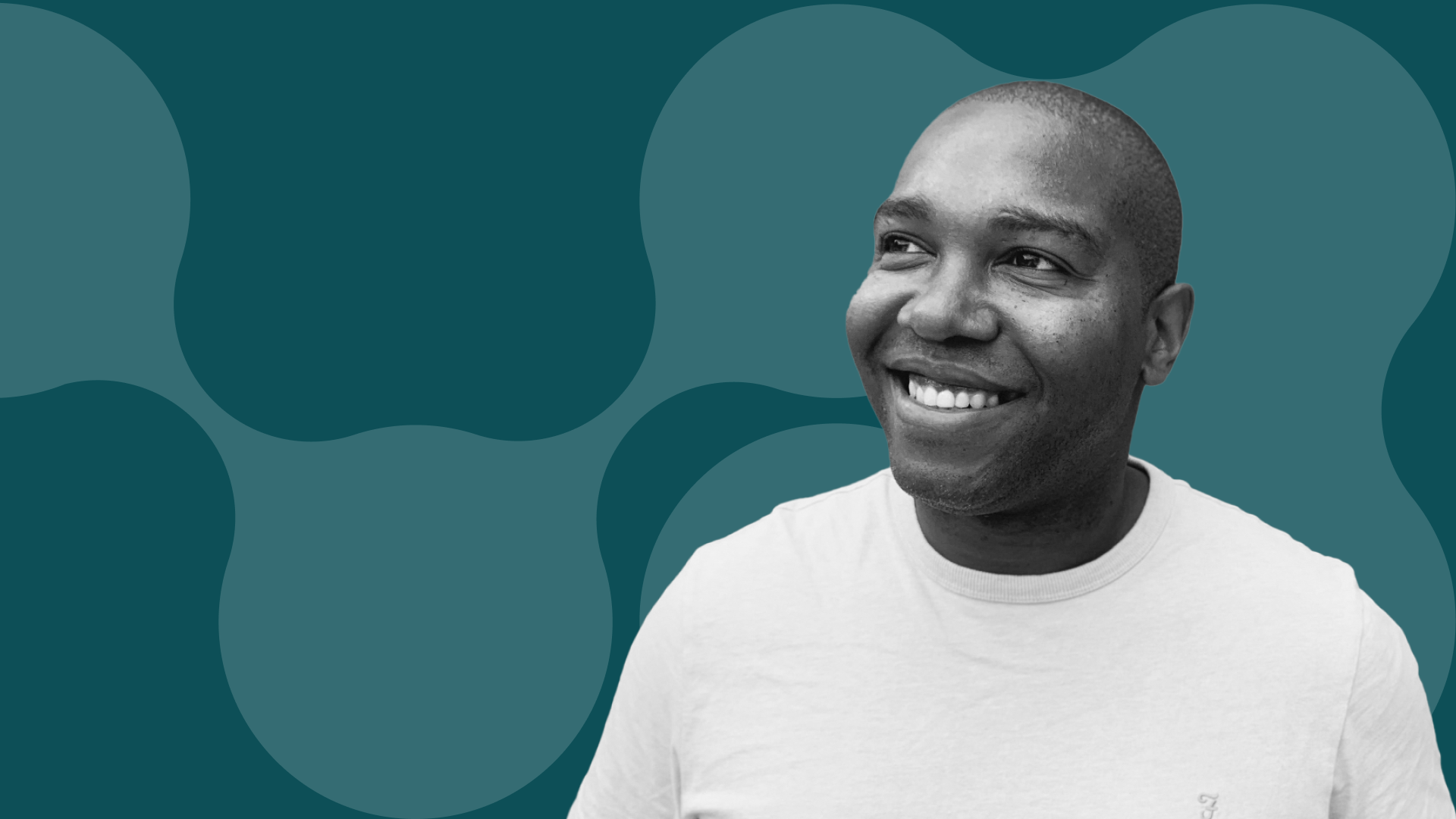How not to be a boring marketer with Brian Macreadie, Addleshaw Goddard
Changemakers spotlights innovative B2B marketing leaders who are driving industry transformation, where we explore bold strategies, disruptive ideas and the power of marketing.

Tell us about yourself
I'm Brian Macreadie, Global Head of Marketing for Addleshaw Goddard, an international law firm. My role is to meet the firm's brand goals and growth ambitions, while doing right by our clients. I've got a specific addition to that: we have very clear brand values and a brand promise in our market, so we're here to showcase our firm's quality, imagination, and impact.
How do you see your role as a B2B marketer in driving broader industry or sector change?
Bizarrely, I don't see my role as driving change in the industry. Not to sound crass, but I’m here to help my business meet its sales ambitions. But if our industry marketing outputs change for the better, or if our marketing profession changes for the better as a result of some of the things that we're doing, and us trying to push boundaries, then great! I hope some of the work we do inspires others. So if it is having an impact, then great. I'm all for that.
I didn’t start out in marketing, I started in the world of physics and defence and cross-trained. The Chartered Institute of Marketing taught us that our job is to help more customers buy more often at optimal prices. That's the essence of marketing to me. If there's a wider benefit, great, but my job is to work with sales to hit our numbers. My job is to improve clients' worlds, not change the industry. That's what drives me as a marketer, and I've stuck to that since my first marketing course.
What is the most provocative idea or strategy you've implemented in your B2B marketing career and what was the response?
I've done a lot of strategic stuff in my career - from launching new products and brands to revamping e-commerce engines. I've made a bit of a career out of doing provocative or different things – we've done poetry campaigns and recorded thought leadership in a music studio, for example. But let me tell you about this communications example.
We wanted to talk to the real estate industry about the legal opportunities and challenges of refurbishing old buildings. So we created this 3D movie showcasing all the legal opportunities and risks from planning through to completion. Picture this: a massive 10-foot tall 3D movie playing in front of the audience. It was pretty cool. But here's the twist - when people walked into the venue, it was a building site. I mean, concrete mixers everywhere, mugs of builders tea, safety netting all over the place. It was carnage! People couldn't believe they'd walked into a professional law firm event. We had people in hard hats walking around, everything looked scruffy.
Then, after they sat through this 3D light show, we pulled off the real magic. We transformed the entire venue from a building site into a fully functional ice bar. So they walked into cement mixers, watched a 3D movie, and came out to... "Oh my God, what the hell? Where are we? What is going on? Are we in the same building?" The sentiment was incredible. We even changed the windows to show a different view of London. It was quite something.
This event was named the most innovative in the country that year, across B2C and B2B categories. But more importantly, it attracted 120 serious VIPs.
We followed up with every single one of them and won loads of work - I think half a dozen new pieces in just weeks. It showed that professional services events don't have to be staid. We can mix it up with the very best of the world's biggest brands.
Now, I didn't start out doing this kind of stuff. You build up to it. You start small, do a few cool things, and people start to trust you. Once they see that clients love it and it gets results, they let you run with it. It took years, but eventually, we were doing stunts outside rival events, making computer games in taxis - you name it.
The key is, don't bore people to tears. When you do interesting stuff, people pay attention. More clicks, more attendance. The results speak for themselves. And let's face it, boring people doing dull things is no way to get exceptional results.
Can you share an example of how you've used storytelling to provoke change or shift perceptions in your industry?
So, we've had this campaign going for the last three years where we created this fictional character, Andrea Goodcounsel, who's the general counsel of a large business. Over about 20 different events, we've explored how Andrea would handle various opportunities and challenges that come her business's way.
It's know-how, it's helpful legal content, but it's applied through storytelling because we've created this character. We've covered some serious stuff - like how to deal with boardroom fraud or how to help a business through a major digital transformation project. But we've also had some fun with it, like discussing her favourite reality TV show. We even wrote a song dedicated to Andrea this year!
The results have been incredible. We've seen attendance rates more than triple since we started this approach. Last year, we had 100% satisfaction, and just this week, we did two more events in this series. Again, 100% satisfaction, but even better, 98% said they were extremely likely to recommend the event - not just "would recommend," but "extremely likely."
It just goes to show the power of storytelling in B2B marketing. We were delighted to see this shortlisted among some other great brands for B2B event of the year. It's storytelling all the way through, and it's really paying off.
What is the biggest change needed in B2B marketing right now and how do you feel you're contributing to it?
I suspect marketing's going to return to its roots a bit. The importance of strategy is going to be crucial. And I don't mean content strategy or social media strategy. I'm talking about how we're going to help our businesses prosper in a world of AI and intense competition.
This isn't just about my category, it's for all marketers. We need to go back to basics: how do we create new sources of competitive advantage? It's going to push us towards more research, really trying to empathise with our markets. We'll need to come up with truly distinctive brands that stand out from our rivals. It's about being more strategic and less tactical. That's where the challenge lies, and the opportunity for those who crack it.
I was at Mark Ritson's 21st Brands Lecture the other night, and he was talking about how AI is changing everything we do -
research, testing, tactical campaign execution, results analysis, the lot. But the one thing we still have the edge on is human creativity, that ability to think laterally in ways AI can't. I mean, I'm not sure AI would have come up with Bohemian Rhapsody, right? Never been done before, never been done since. A robot can't invent something that new because it's got nothing to train on. There's no precedent.
Humans can still make those empathetic leaps. Creativity is crucial, but thinking strategically about how you help your businesses succeed - that's the bigger point. We need both: the creative spark and the strategic mindset.
How do you encourage your team or organisation to think more boldly and embrace change in their marketing approach?
There are a few things we do. We try to stay on top of what's changing out there. We look a lot at what other people are doing in other industries. I was just watching an HSBC campaign yesterday and learning from it.
But I think what's distinctive about my team is that we're prepared to be honest with ourselves. If something we're doing isn't up to scratch, if it's boring, if it's not going to get any response from our audience, we're prepared to say, "This isn't good enough," and stop and rethink. We'll tell our colleagues, "Sorry, but this isn't good enough." And then we'll come up with alternative suggestions.
We're just really lucky. We've hired a bunch of brilliant, fun, can-do, upbeat people. I think most people in marketing are like that, so it's not unique to us. We're just honest with people right from the interview process that we're pushing boundaries here.
One thing that's also helped is sharing academic research and competitive case studies on the need to stand out. I've shared stuff from Ritson, Binet and Field, Harvard Business Review articles on branding. You educate people on the need to be different, then you lean into it and help them be different
What makes B2B marketing ‘changemaking’ in one word?
Empathy (with clients).
What I mean is, if your marketing doesn't make a client feel something or make them respond in a certain way, or help them, or empower them, or enable them to do their jobs better - then it's not great marketing, in my view. Without empathy for the client, you're nowhere. I don't think there's any other word even in the same league when it comes to understanding and connecting with clients. It's that fundamental.
What is your one piece of advice for future changemakers on how to be more effective in B2B marketing roles?
Can I cheat and give you two? Here goes: Don't do the same as everybody else, because blending into the crowd is no way to stand out from it. You can't stand out if you're doing what everyone else is doing - it's impossible. So that's the first bit: don't just follow the herd.
And the second? Make your audience feel something. That's it. If you can nail those two things - being different and stirring emotions - you're onto a winner. They go hand in hand, really. Be distinctive and make people feel something. That's the secret sauce right there.
Want to hear from BCB's Sam Shrager on on driving change through strategic B2B partnerships? Click here for more #Changemakers.
More Insights from alan.
To re-form your industry, we must re-form ours first. From our visceral point of view on creativity to our incisive approach to strategy, delve into our provocative thought-leadership on how we’re aiming to subvert B2B’s status quo.




